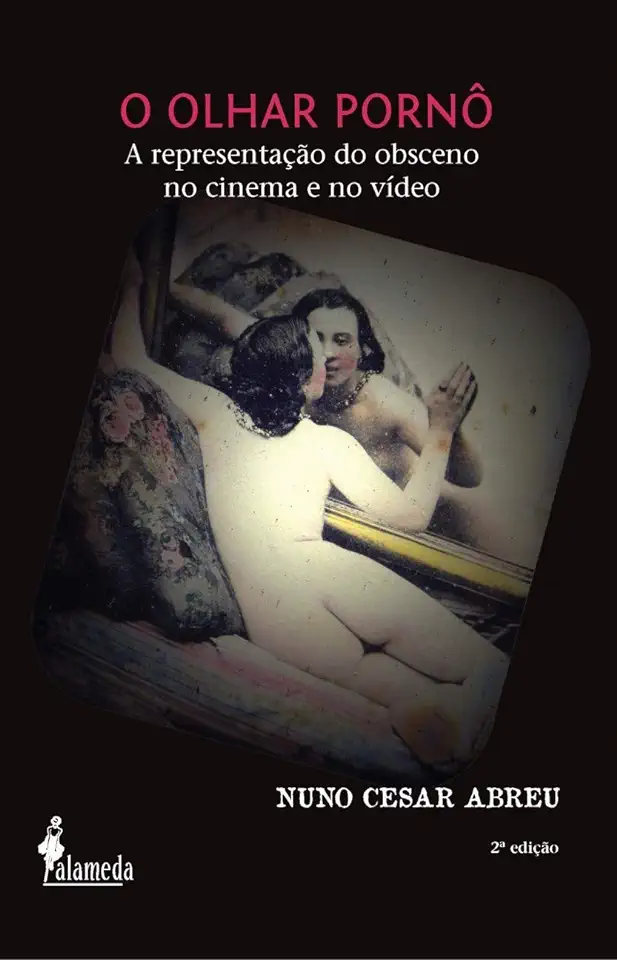
Pornography: The Representation of the Obscene in Cinema and Video - Nuno Cesar Abreu
Pornography: The Representation of the Obscene in Cinema and Video by Nuno Cesar Abreu
A Comprehensive Exploration of Pornography in Cinema and Video
In his groundbreaking book, "Pornography: The Representation of the Obscene in Cinema and Video," Nuno Cesar Abreu delves into the complex and controversial world of pornography, offering a comprehensive analysis of its representation in cinema and video. With meticulous research and thought-provoking insights, Abreu presents a compelling exploration of the cultural, social, and political implications of pornography, challenging conventional notions and inviting readers to engage in a critical dialogue about this pervasive aspect of contemporary society.
Unraveling the Obscene: A Journey into the Heart of Pornography
Abreu begins by defining and contextualizing the concept of obscenity, tracing its historical evolution and examining its legal and cultural significance. He argues that obscenity is not simply a matter of explicit sexual content but rather a complex interplay of social norms, power dynamics, and individual perceptions. Through a series of case studies and in-depth analyses of pornographic films and videos, Abreu demonstrates how the representation of the obscene varies across different cultures, time periods, and media platforms.
The Power of Pornography: Shaping Sexualities and Desires
Abreu explores the profound impact of pornography on human sexuality and desire. He argues that pornography is not merely a reflection of existing sexual desires but also a powerful force in shaping and constructing those desires. Through its explicit and often exaggerated representations of sexual acts, pornography influences individual sexual fantasies and behaviors, contributing to the formation of sexual identities and the negotiation of sexual relationships. Abreu's analysis sheds light on the complex interplay between pornography and sexuality, challenging simplistic notions of cause and effect.
Censorship and the Politics of Pornography
Abreu delves into the contentious issue of censorship, examining the various forms of regulation and control imposed on pornography throughout history. He argues that censorship is not simply a matter of protecting public morals but also a reflection of broader social and political power dynamics. Abreu analyzes the role of governments, religious institutions, and moral crusaders in shaping censorship policies, highlighting the ways in which these policies reflect and reinforce existing social hierarchies and inequalities.
Pornography and the Law: Navigating a Legal Minefield
Abreu provides a comprehensive overview of the legal landscape surrounding pornography, examining the complex interplay between freedom of expression, obscenity laws, and the rights of individuals. He analyzes landmark court cases and legal debates, demonstrating how the definition of obscenity has evolved over time and how it continues to be contested in different jurisdictions. Abreu's legal analysis offers a nuanced understanding of the challenges and complexities of regulating pornography in a democratic society.
Pornography and Gender: Power, Pleasure, and Exploitation
Abreu dedicates a significant portion of his book to exploring the gendered dimensions of pornography. He examines how pornography often perpetuates gender stereotypes, reinforces patriarchal power structures, and objectifies women. However, Abreu also acknowledges the potential for pornography to empower women and challenge traditional gender roles. Through a critical analysis of feminist perspectives on pornography, Abreu encourages readers to engage in a nuanced and intersectional understanding of the gendered dynamics at play.
Conclusion: Towards a Critical Understanding of Pornography
In his conclusion, Abreu emphasizes the need for a critical and informed understanding of pornography. He argues that pornography is not inherently good or bad but rather a complex cultural phenomenon that requires careful examination and analysis. Abreu calls for a balanced approach that acknowledges both the potential harms and benefits of pornography, while also recognizing the importance of individual autonomy and freedom of expression.
Why You Should Read This Book
"Pornography: The Representation of the Obscene in Cinema and Video" is a must-read for anyone interested in understanding the complex and multifaceted world of pornography. With its comprehensive analysis, thought-provoking insights, and engaging writing style, Abreu's book offers a valuable contribution to the ongoing dialogue about pornography, sexuality, and censorship. Whether you are a scholar, a student, or simply someone curious about the role of pornography in contemporary society, this book is an essential resource that will challenge your assumptions and deepen your understanding of this controversial topic.